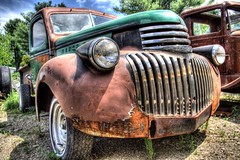So, on Monday, I killed my computer. On Tuesday, I spent 12 hours in airplanes and airports with my two children, ages 3 and 1, by myself.
It’s been a great week. 🙄
Yeah, so back to what I meant to talk about today. A few months ago, I picked up a  storybook to read to my son. It was about 8 pages. It featured trucks, work, and friendships, and . . . well, it sucked.
storybook to read to my son. It was about 8 pages. It featured trucks, work, and friendships, and . . . well, it sucked.
A few days later, I let my husband read it to my daughter for bedtime. Once he finished, I waited for his reaction. He looked up and said, “That book sucked.”
We read a lot of board books, including baby books that are merely lists of items or colors or emotions. We read “I love you” books and song books and silly books all without complaint. So why did this book turn us both off?
It had no plot.
Now, it did have a series of events. Trucks did this, went there, said this. We don’t have a high literary standard for our children’s fare.
But if you’re going to tell a story, your plot has to have conflict. Even if you’re writing for three year olds. Even if you’re writing marketing shlock slapped onto a board book (which this was).
A counter example: we also read The Little Mouse, the Red Ripe Strawberry and the Big Hungry Bear . I’d guess it has somewhere around the same number of words, but the whole book is about the mouse trying to keep his strawberry from the bear.
Conflict. Even in a children’s book. And that one gets requested a lot more than the truck book.
What do you think? Is conflict something we all inherently want in a book?
(If you’re wondering, traveling wasn’t really that bad. They’re pretty good kids. I might even keep them.)
Photo credit: Lawrence Whittemore


My kid showed me a picture book a while back about a puppy learning something important. It was maybe 16 pages long, 250 words or so, yet I literally found all 12 stages of the Hero’s Journey in it.
Puppy can’t do X, there’s an opportunity to learn something, he’s not sure he should, talks with an older relative, decides to figure it out, finds some friends, has some setbacks, blah blah blah, finally learns the lesson after realizing what he’d been doing wrong.
All in maybe 250 words. So it can be done! 🙂
Sounds like the trucks never learned anything from their adventure.
I critiqued a chapter at my group last night where nothing happened, just a guy travelling through a space station encountering no difficulties. And then the author argued with me about the need for conflict. Sigh.
I agree that we all want conflict in most books, even picture books, but not always. My three-year-old grandson loved to look at a book that I bought him. It had pictures of a new baby with a mum, dad, toddler and baby. It showed the toddler helping the parents with the baby. As my grandson’s new sister had just arrived, he carried the book around with him and copied the things that the toddler did in the book. Like handing toys to the baby and kissing her, then wanting to help with bathing the baby. He loves that book, but it doesn’t have conflict.
@Iapetus—Yeah, the trucks did their work easily and washed up. Fun. Not.
@Trish—That’s not a storybook. I made a distinction in the post between picture books and storybooks. Picture books don’t tell stories. Storybooks do (or try to).
Ooops, sorry, Jordan. Now I see your point. I think I was half asleep when I made that post.